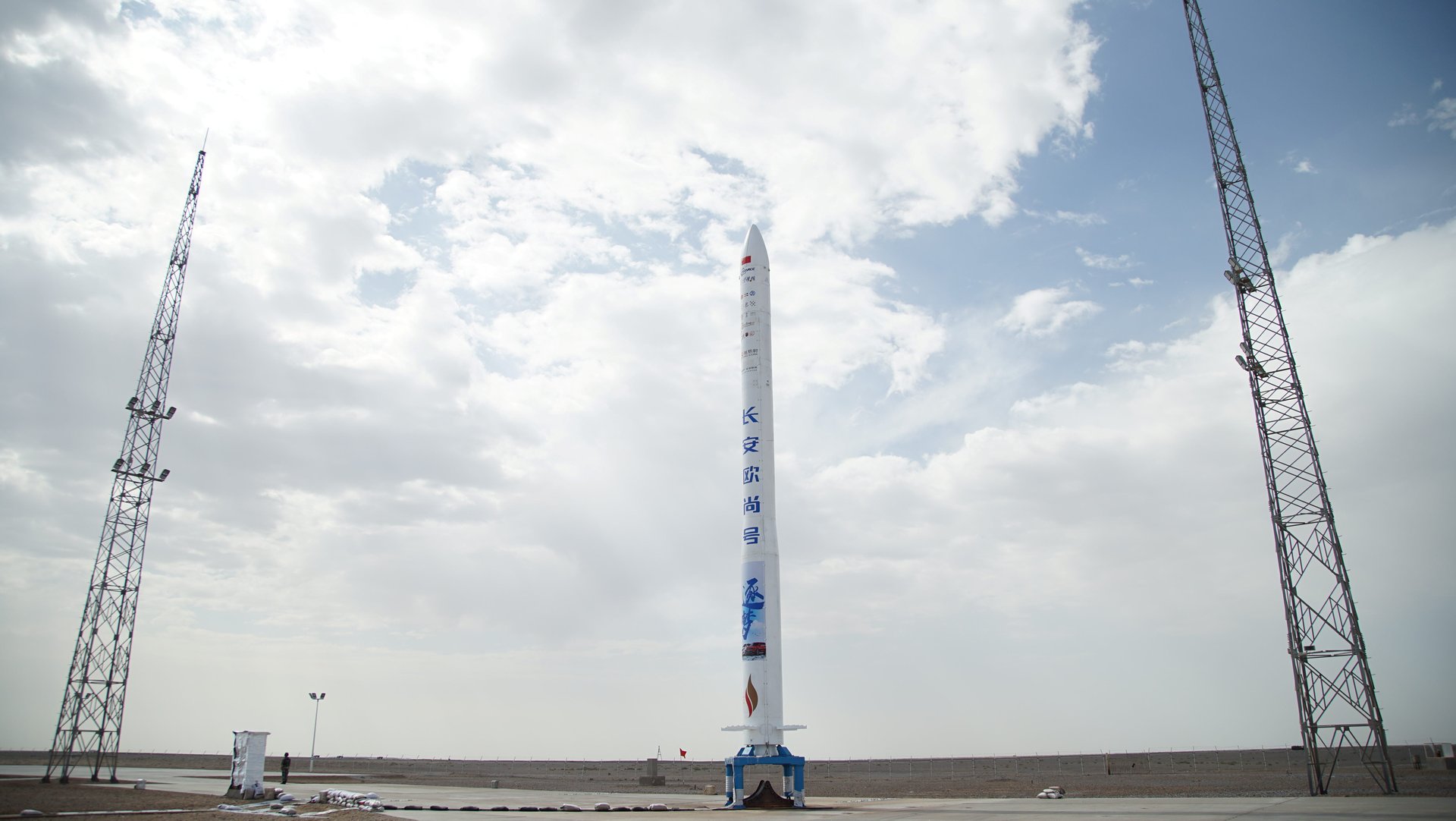Watch: This Chinese rocket’s payload included a model SUV made by its sponsor
A carmaker sponsored China’s first successful rocket launch by a private rocket maker. In return, a model of one of its cars got to tour the earth 15 times in orbit.


A carmaker sponsored China’s first successful rocket launch by a private rocket maker. In return, a model of one of its cars got to tour the earth 15 times in orbit.
A red sports utility vehicle (SUV) model from Oushang, a car brand under state-owned carmaker Changan, reached earth’s orbit on Thursday (July 25), according to a three-minute-long video the Beijing-based rocket maker Interstellar Glory Space Technology (also known as iSpace) shared with Quartz. iSpace last week became the country’s first private firm to successfully launch its Hyperbola-1 rocket into orbit after two others failed earlier, bringing iSpace one giant step closer to commercial applications such as satellite launches.
The firm said it’s planning to launch around five Hyperbola-1 rockets with updated technology next year, and hopes in 2021 to launch a reusable rocket, Hyperbola-2, a concept pioneered by Elon Musk’s Space X.
The firm’s 20-meter-tall (65 feet) rocket had its sponsor’s name on it, while Changan Oushan also chose the colors of the rocket, a spokesperson with iSpace told Quartz. It declined to disclose details on the cost of manufacturing and launching the rocket.
Changan Oushang is one of the two Chinese carmakers sponsoring private rocket launches this year, which so far both seem to be driven by publicity aims, rather than any clear technical gain. Changan Oushang earlier said its sponsorship is both a response to China’s 2014 call to businesses to help the country develop a commercial space industry, and also for “substantial technology transmission.” Changan Oushang also promised to give out 10 million yuan ($1.5 million) to customers if the launch succeeds.
In the wake of the launch, the carmaker has given out several million yuan in cash to people through lucky draws via local dealers, a marketing manager for the firm told Quartz. The final amount could end up being more than 10 million yuan. The carmaker hopes to eventually test the performance of its car technologies in space in extreme conditions, and has been receiving launch-related data from iSpace, said the manager. But he declined to specify which technologies or the sponsorship amount, citing “trade secrets.”
The Hyperbola-1 carried a total of seven payloads (some links in Chinese), including the SUV model, an empty bottle of Fujiu brand baijiu (grain liquor that is 40%-60% alcohol by volume) and two satellites. The bottle was empty because alcohol isn’t allowed in space, iSpace said, and has since burned up, along with the car, in a controlled re-entry.
The two satellites, one for Beijing Institute of Technology and other for a subsidiary making satellites under state-owned China Aerospace Science and Industry Corporation, will stay in orbit, while the three other payloads will undergo experiments before reentering the atmosphere in a controlled reentry. It’s unclear what the three other payloads were—iSpace said one was from satellite operator ADASpace, and other from Xigua City, a Hangzhou-based education institute.
iSpace’s successful launch was a timely reassurance to China’s private space industry after LandSpace and OneSpace failed to launch a rocket respectively in October and March. They are the first three among multiple startups attempting to enter the launch market for small commercial satellites.
In February last year, a rocket carried an actual car into space. SpaceX’s Falcon Heavy rocket’s maiden flight carried a cherry-red electric Tesla Roadster, with a mannequin passenger, and set it in orbit around the Sun, a demonstration to potential clients of its payload transport capabilities. Both the Falcon Heavy and the earlier generation Falcon 9 are much bigger than the Hyperbola-1.
Update, July 31: This piece has been updated with comments from Changan Oushang.